Beloved professor retires after 16 years of service to Loyola community
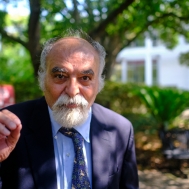
Courtesy of Loyola University New Orleans
June 7, 2023
During a group discussion in one of history professor Behrooz Moazami’s classes about a writer’s argument for an assigned reading, Moazami asked Jennifer Hunt, a double major in history and women’s studies at the time, a question. After her answering, he then told her something that would strike fear in many students’ hearts: “now go stand up at the front of the room. They’re going to start asking you questions.”
“Without warning, prompting, preparation, anything, he made me stand up at the podium in front of the room and just defend the perspective of this writer to, like, 20 of my classmates,” Hunt said.
After she was done, the class broke into cheers.
“I killed it,” Hunt said. “I would have never expected it out of myself. I would have never done it for myself.”
Following her time at the front, Hunt said she looked over to Moazami.
“He just had the proudest look on his face,” Hunt said. “I remember thinking, ‘Oh, he knows something about me that I don’t know.’”
Hunt, who graduated from Loyola in 2011, isn’t alone in being inspired while a student under Moazami.
She also isn’t alone in being sad to see him retire from the university after 16 years of teaching at Loyola.
In his time on campus, Moazami started the Middle East peace studies program. It is one of the few programs to focus on studying peace in this region at the undergraduate level in the U.S. He also helped start the Loyola University Students Peace Conference, which he has continued to support and promote annually since it began in 2008.
Retirement
As Moazami moves on from Loyola, Hunt said she hopes he gets the rest he deserves.
“He has given a lot of people so many things, and I think that he deserves to go spend afternoons in the garden with his wife” she said.
Moazami said his wife, Liilla Moazami, is very happy to have him living full time back in Brooklyn, New York where Moazami is when he is not teaching.
“I’m always saying I live there but work here,” Moazami said.
But resting does not come naturally to Moazami.
“I am leaving for the same reason I came to academia and landed at Loyola: politics,” he said.
Moazami’s transition to academia, culminating in his arrival at Loyola, was motivated in part by his perception that the political landscape at that time did not provide him with the desired level of influence he sought. But now, as Moazami said he is at the age where he needs to think about retirement, he also found it was possible for him to actively contribute to the protest movement in his home country Iran, prompting him to take action.
Moazami will be devoting a lot of his time in retirement working on a forum meant to discuss urgent problems for the left in Iran, with hopes of one day turning this forum into a think tank. Currently, the forum includes a YouTube channel, and a telegram channel, which are heavily used in Iran.
Legacy
History senior Margot Bullock, who described her relationship with Moazami as “somewhere between friend and drunk uncle,” said Moazami will be greatly missed on campus. Bullock has taken three of his classes, and has worked with him on the peace conference for the past couple years.
“If students don’t know him, he is one of the more intimidating people that they meet. I remember when I first met him I was scared,” she said. “Once you get past the accent and the quiet voice, there’s a world of things to learn from him.”
Bullock said that one consolation to Moazami leaving Loyola is that his impactful legacy will endure.
“I don’t think I would be who I am without him,” Bullock said.
Bullock said Moazami often would put students in situations to challenge them, which which ultimately contributed to his profound influence.
During the first day of one of classes last semester Moazami announced Bullock was to become the peace conference chair for the Spring 2023 semester and would be making an announcement to the class.
“First of all, I wasn’t expecting to say anything. Second of all, I was not expecting to be the chair. So I just got up and was like, ‘alright, well I guess this is my position,’” she said.
But the surprises didn’t end there.
“A week later he emails me and is like, ‘you’re coming to the meeting, right?’ And I was like, ‘what meeting?’” she said.
That’s when Bullock found out she would be speaking at the College of Arts and Sciences meeting that day about the conference.
“He just throws these curveballs,” she said. “If you’re prepared or not you’re gonna have to do it anyway.”
For Moazami, he said he hopes his legacy will be public participation in major part through the peace conference.
“I used to have conferences before coming to Loyola. That’s what I learned from the American system, and how students’ participation through conferences can help them,” he said. “When I came here, I came with that plan.”
Moazami said he was fortunate to find good students that were eager to start it. His main goal was to get students involved. Those students who have worked on running the peace conference over the years become expert organizers and excellent public intellectuals, he said.
Hunt was part of the first three peace conferences, having served as research chair one year and president the other two. She said in the beginning of the conference, 15 years ago, the idea of spending a week to discuss peace was bizarre in America. And students got a lot of pushback from the community.
“I’ll never forget, somebody told me ‘oh yeah, I hear they’re opening up a women’s studies factory down the street,’” Hunt said. “We were just so ridiculed for studying liberal arts, studying things like peace.”
Hunt said Behrooz was key in motivating students to go through with the conference despite little support from the Loyola and New Orleans community.
“This was something that the students were like, ‘we’re gonna do this,’ and we didn’t get a whole lot of support from the greater Loyola faculty,” Hunt said. “But Behrooz showed up for us over and over and over again. And he’s kept it going.”
Despite Moazami leaving Loyola, he hopes the peace conference continues.
“It’s an institution now,” he said. “That’s what I am most proud of at Loyola: of being able to provide such a forum for others.”
Teaching Style
Bullock said that participation is a big part of the way Moazami teaches his classes as well.
“He wants it to be a discussion, and if you don’t have anything to say, you have to make it up. And he is so serious,” she said.
Bullock said that despite how “awesome” Moazami is and how much work he has done for Loyola, not enough people recognize it.
“They kind of just write him off, because he’s older,” Bullock said. “I’m really lucky to have had the time to know him, and I’m sorry for everyone who hasn’t crossed paths with him. I really am.”
Hunt said her biggest takeaway from Moazami was that he teaches from a perspective of practical application.
“He’s not teaching you peace studies so you can walk away and be like ‘I’m an expert in peace studies.’ He’s teaching you peace studies because he expects you to go out in the world and do peace,” Hunt said.
That is exactly the impact Moazami had on Hunt’s life.
“All of my work is in violence prevention and response,” Hunt said. “I was convinced during my time under Behrooz that you can walk the talk. And that’s what my career has looked like.”
Hunt said Moazami proved this to her by walking the talk in his own life, working in political activism for many years. He worked for a time as a journalist, writing for dissident publications in Iran. He also co-founded and co-edited “Andisheye Rahai,” a Persian review on politics, theory, and society while living in Paris, France in exile.
Coming to Loyola
But 16 years ago, Moazami was facing two job offers, one of which being Loyola. It took the advice of his professor and mentor, David Plotke, to help make that decision.
“He told me, ‘are you stupid? Go to New Orleans,’” Moazami said. “When I came here I realized I needed to reinvent myself. I used to be a political activist.”
That’s when Moazami began to form the idea for the Middle East peace studies program, which he successfully proposed to both his chair and the dean at the time within the history department.
“I was mostly thinking of my own future, rather than the students’ future. I was thinking of how best I can teach the students from my own experience,” he said.
Life of the Party
But Moazami, according to Bullock, isn’t all work and no play. He has a “boogie worm,” she said.
“He loves a party. He never wants to be left out of any kind of plans. And that, I think, carries on into his teaching,” Bullock said. “He wants to make sure everyone is doing their work so that he can talk to them. He wants to tell them about the world in a way they haven’t really thought of it before.”
Farewell, but not goodbye
Adil Hussein Khan, a religious studies professor and colleague of Moazami, said Moazami’s departure will be a great loss for Loyola.
“Professor Moazami represents an archetype of what we sometimes call the activist scholar. Activist scholars of his generation often brought a sense of optimism to campus that change is possible if we collectively mobilize and confront the various mechanisms of oppression, exploitation, and corruption together,” Khan said. “We do not have anyone else who comes close to making the types of contributions Professor Moazami made in terms of mentoring student activists by drawing on his enormous wealth of lived experience.”
Despite what a loss his departure will be, Khan said Moazami’s retirement is well deserved.
Hunt said that even though Moazami will hopefully get some relaxation into his retirement, it only means that more than just Loyola can benefit from his presence. Bullock added that she expects Moazami to remain actively engaged in Iranian political affairs, just as he has always encouraged active participation in his classes.
“He might be done with Loyola, but he’s not done with his movement,” she said.
Despite his retirement not meaning goodbye for those students that will be keeping in touch with Moazami beyond Loyola, there is still a lot to be missed in his physical presence at the university, Bullock said.
“I’m gonna miss watching him shuffle from Bobet to the Danna Center,” Bullock said. “He has such a wonder in his eyes and I think that that kind of wonder will be missed here.”
Moazami said he will miss Loyola too.
“Everything comes to an end. Even my great time at Loyola,” he said. “I’ve learned so much at Loyola that leaving feels like another time in exile.”







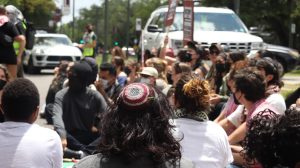
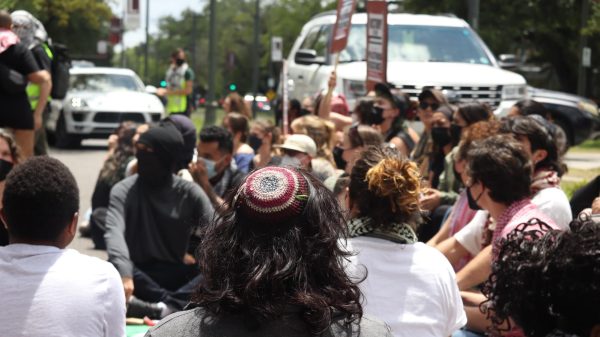

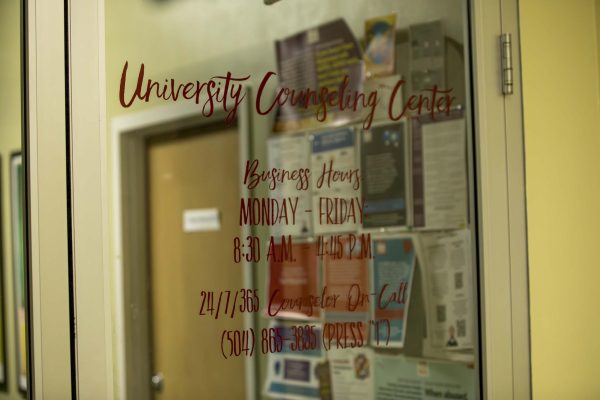
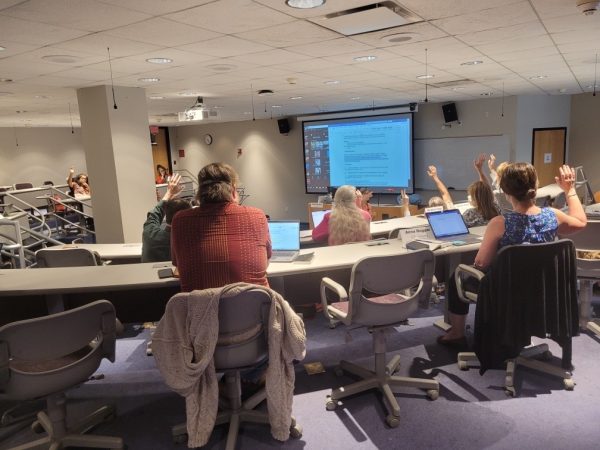

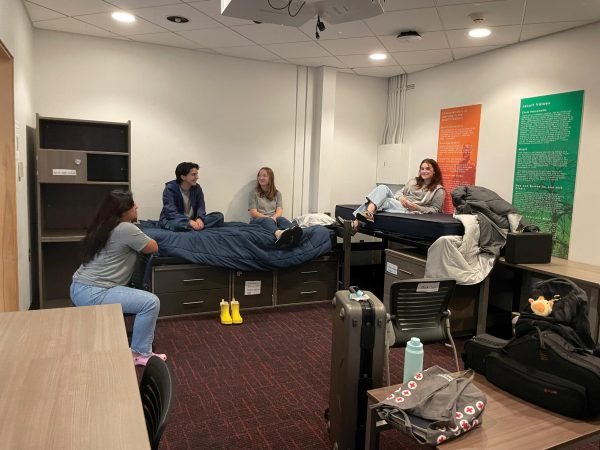
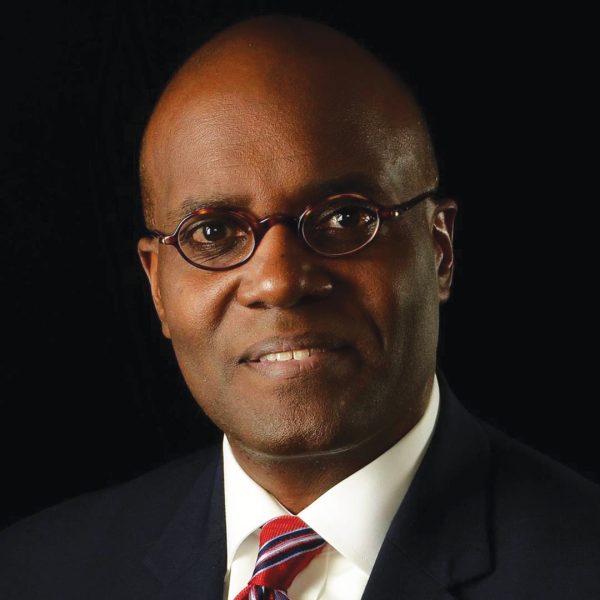


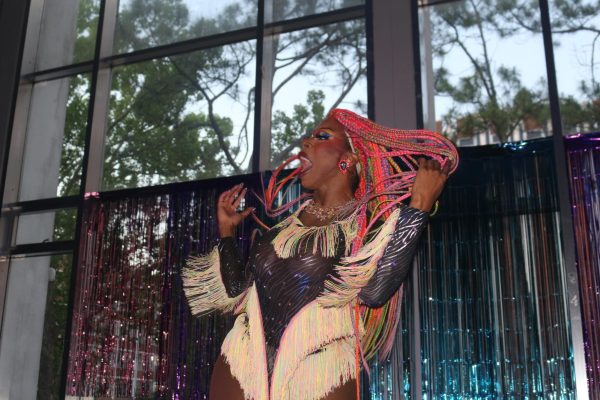
Shirine Gill • Jun 11, 2023 at 9:14 am
He is a wonder on his own but he also Carries a massive humanitarian legacy of the elders of his family, father, mother, aunt and uncles. They were the kindest and most caring people I have ever met. They would have been deeply proud of his caring heart and muscular intellect .